Instagram is my favourite social media platform right now. By far. I love how it connects me with like minded folk and sparks interesting discussion in an exciting, instantly satisfying kind of way. One of the most vocal participants of this Instagram conversation very recently was Independent Humanist Wedding Celebrant, Natasha Johnson. Natasha is also a blogger and writer who is passionate about discussing all things related to weddings, but ceremonies in particular. The image I shared touched on wedding tradition and highlighted how so many of our Western wedding day traditions have their roots wrapped up in sexism.
Knowing our community of readers is a tribe of intelligent, soon to be and already married women of all ages and backgrounds who support gender equality and respect diversity, Natasha offered to share a written piece with us today that addresses some of the more sexist, traditional nature of weddings, and what we can do to change them. As someone who has officiated over 400 weddings over the past few years, I believe this positions her well to share her comments and observations and I hope you enjoy this read. Love Annabel x
We only have to look down the end of our own noses to see that now more than ever our marriages and relationships are the most equal that they have ever been. Gone are the days of the ‘little wifey’ at home, a powerless woman who after her wedding day is reduced to a life full of childcare and chores, as well as being the much needed support system to her bread-winning husband. Unless she chooses it to be this way, of course.
Chores, childcare and the general maintenance of the machine of married life are no longer assigned to an individual according to their gender. They are worked out by a pair of people ,who form a team and decide the equal rules for how their marriage will work. Correct? Absolutely!
So then isn’t it funny that now that we are at this stage in society where equality in marriage is a strong and present factor, many people still get married (the act of marriage), in a way that is so sexist, unequal and full of patriarchal traditions, which actually do nothing to inspire a marriage to begin on an equal footing!
LOOKING AT THE PAST TO REDEFINE THE PRESENT
Some people may well feel that analysing a wedding day and traditions in this way is a little bit over the top and unnecessary, because after all, many of the decisions made about one’s big day are personal and subjective ones. But it can also be argued that it is also better to be informed and to know the reasons for why one does something, before doing it, rather than just blindly following a tradition for no other reason than it being a tradition. If we did this with a whole host of traditions (non-wedding ones too!), the world would be in a whole lot of trouble.
When you look at marriage ceremonies in a historical context (I’m talking way, way, way back), you will see that weddings really had nothing to do with love, let alone equality. Marriage as an institution developed principally out of political and economic needs; the protection of assets; exchange of wealth; a geographical foothold, even! The last thing that a marriage ceremony concerned itself with was whether the two people getting married were actually in love with each other, or that they had a mutual respect or an understanding of each other. This was not relevant, nor was it a pre-requisite. And, sadly, love-marriages happened to just a lucky few.
As marriages developed over time, so then did the need for customs and formalities to ensure that the promises given by the individuals were properly carried out, therefore protecting the interests of all those concerned. Crazy, right?
So by looking directly at the past we are able to see how so many of the traditions and custom that are still lingering around in current weddings and wedding ceremonies, are so entrenched in old-fashioned and sexist values. And this, lovely readers, is the point. Before any individual goes blindly stepping over the wedding threshold, they should perhaps stop, take a minute and think about what their wedding ceremony and celebrations mean to them and whether the key elements of their day represent them as the individuals they are.
Image source: Moissanite
THE ONE WHERE THE FATHER WALKS THE BRIDE DOWN THE AISLE
Now it would take a very mean spirited and downright miserable individual to not see the beauty in a bride being walking down the aisle by her father. For anyone to have witnessed a moment like this, you cannot doubt the emotion in seeing a proud father and his equally proud daughter, walking down the aisle, arm in arm. But let’s just hold that little reverie right there for a moment and look back to the origins of this beautiful scene, so that we can see that it was not always like this.
This proud father many centuries ago, was also the head of the household, and that fine daughter whose arm he is holding on to is tantamount to his family possession. It’s he who allowed for the marriage to take place, he who has approved the deal, he who is happy with the bargain. He who walks his beautiful, well-presented, non-damaged goods down the aisle to deliver her, in perfect condition to the other man with whom the deal has been reached, the man who will receive a handsome sum in return. Yes, it sounds awful doesn’t it? And that folks, is because it was! A business transaction carried out in full splendour!
Of course, this is not why fathers walk their daughters down the aisle nowadays, but this is how we have arrived at why fathers do this. And this is why perhaps it is time to start thinking about our mothers and wondering why they aren’t featuring more in something as important as this.
Equality in weddings is starting to happen. More and more couples are saying ‘hell no’ to these traditions and now many brides are now walking down the aisles with their parents in tow, recognising and honouring those two people who gave her life and raised her well! Added to that, more and more couples are even saying goodbye altogether to being walked down the aisle and are simply choosing to walk by themselves, because it is they who will be facing life together, so why not start their ceremony with a very symbolic definition of their relationship? There too are many instances of the brave solo bride, choosing to make the walk towards her partner in life, all by herself, strong, bold and committed. There are so many amazing options that it seems almost stubborn to stick with just one antiquated version, unless of course your heart is set on it.
It may also be worth adding here that, interestingly, many same sex couples tend to enter their ceremonies together or accompanied by a parent or friend but both still entering at the same time. This is a shining example of an equal outlook on one’s wedding day, a prelude to the marriage itself. It is admirable that the gay community often does not constrain itself to traditions which have no meaning to them or little relevance to their relationships.
From this wedding on Love My Dress
Photograph by David Jenkins
THE ONE WHERE WE TAKE OUR HUSBAND’S SURNAME
I admit that when I was fifteen and obsessed with Johnny Depp during his 21 Jump Street Days, I once filled a whole notebook with the different ways that I could sign my name as ‘Natasha Depp.’ I couldn’t wait to change my name to something else and to have a new identity. Many women change their surname to their husbands’ without a second thought and this of course is absolutely fine, as it is down to everyone’s personal preference. However whatever way you look at it, the fundamental idea behind the concept of taking your husband’s name is a sexist one. There is no legal reason why it is the man’s name that needs to be taken and it’s only the antiquated tradition of the man being the head of the household which still feeds this practice.
I’m disheartened every time I sign into Facebook and see a list of female names I don’t recognise. You got married, congratulations! But why, in 2013, does getting married mean giving up the most basic marker of your identity? And if family unity is so important, why don’t men ever change their names? (Jill Filipovic, The Guardian)
Many couples now recognise that they would like a more equal approach to name-changing and many choose to use both their surnames together, either as two surnames or in a double-barrelled form, and some grooms have even taken their wives’ surnames. Couples who have or will want to have children can still all have the same name in this respect, too, which usually nowadays is the primary motive for why a woman changes her name.
Actress Zoe Saldana’s husband caused a media storm when he chose to take on her surname at marriage.
THE ONE WHERE THE BOUQUET IS THROWN
This element can provide so much fun and laughter on a wedding day, as all the single ladies position themselves, dresses hitched, shoes off, ready to catch that bouquet as it flies throw the air. Tensions are high as everyone prepares to bag themselves a future. But hang on a second, let’s just look at this a minute. As beautiful, strong, intelligent women is this an image of ourselves that we want to portray? Clambering to catch a bouquet because folklore says we will be next to get married. And when the bouquet is hastily snatched up, the losers head back to their seats, slightly embarrassed at their over-zealous failed efforts and doing a “maybe next time” shrug, is this how we define ourselves?
Is our marriage, when or if it happens, the most important accomplishment of our lives? Of course it isn’t, but maybe by including this mini, all-women game show on our big day we are saying it is. Let’s not forget that men are not subjected to this and have no other type of game of their own to contend with. There will be many people who see the throwing of the bouquet as nothing more than harmless fun and they are well within their rights to, but whatever anyone’s opinion is, it is always good to know what the wider meanings and implications of something are before subjecting your single girlfriends to this!
THE ONE WHERE ONLY MEN DO SPEECHES
If we used the wedding speeches as a measure of how women behaved in real life, then we would be lead to believe that all women do is to sit and look pretty, whilst directing lots of gazes and loving looks in the direction of our husbands. And that this is something we do whenever any important man speaks about us or on our behalf, as though we were unable to speak for ourselves.
This is one thing about my own wedding day that I am still a little sore about, even ten years down the line! I love speaking (can’t you tell) and I really wanted to share my funny stories and address all of our family and friends, but my husband wanted to stick with tradition and do it the ‘proper’ way. I didn’t even put up a fight. I can only blame this on the Caribbean side of my brain that controls my laidback-ness and I really should have been more insistent about it and how I felt.
You may, however, be someone who is quite happy for someone else to speak on your behalf. But if you’re not, make sure your voice is heard. Or why not have a girlfriend or your mum do a speech to represent the sisterhood in your life?
From this wedding on Love My Dress
Photograph by Razia Jukes
DO WHAT IS RIGHT FOR YOU
For many couples, the traditional elements of a wedding day (and these examples are just a few!) may not represent sexist values but purely personal choices. A bride might not want to do a speech, simply because she couldn’t think of anything worse to do and would prefer to pull her fingernails out than address a room full of people. The same with being walked down the aisle, some may want to forget the history of it, and ensure that their father has his moment of pride. And that of course, is everyone’s prerogative.
If you want to include traditional elements on your big day, then you should include them. Nobody is going to think that you’re a disgrace to your gender, if you make fully informed, personal choices about how you want to be married. The important thing is to know why these traditions exist in the first place and to weigh up what doing these things on your big day mean to you. And if you are still happy with them and their significance, then do them, but if you’re not, then you most definitely shouldn’t.
Yes, weddings are fundamentally sexist, but we have the right, the intelligence and the power to make decisions that we feel are best for us, whether that means kicking traditions to the curb or embracing them wholeheartedly. Only you can, and should, decide.
What are your thoughts? Are the reasons behind wedding tradition important to you? Is the matter of sexism in wedding traditions something that bothers you? Do gender equality and feminism weigh on your mind as a bride to be? We’d really love to spark a supportive and interesting discussion and look forward to receiving all views.
Love Natasha x
 Natasha Johnson is an experienced Independent Humanist Wedding Celebrant, blogger, and writer on all things related to weddings, in particular wedding ceremonies. From traditions, to breaking them and everything else in between, this former BBC reporter’s aim in life is to champion unique wedding ceremonies and encourage couples to get married in exactly the way they want to, NOT the way they think they have to! You will find Natasha on Instagram at @EngagedAndReady.
Natasha Johnson is an experienced Independent Humanist Wedding Celebrant, blogger, and writer on all things related to weddings, in particular wedding ceremonies. From traditions, to breaking them and everything else in between, this former BBC reporter’s aim in life is to champion unique wedding ceremonies and encourage couples to get married in exactly the way they want to, NOT the way they think they have to! You will find Natasha on Instagram at @EngagedAndReady.

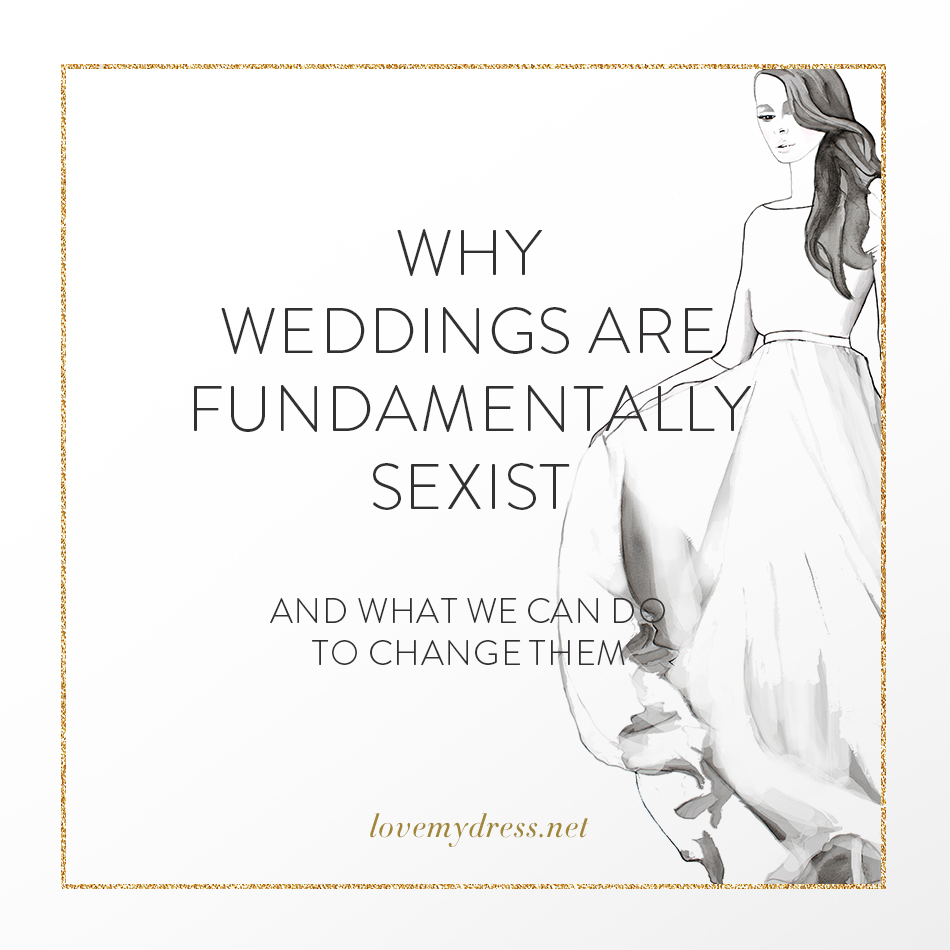

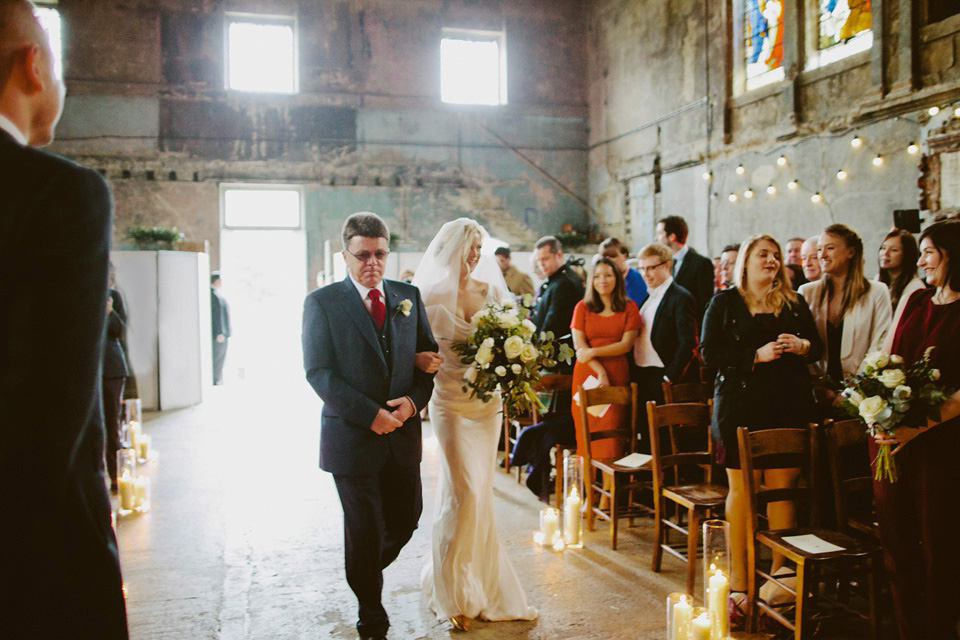
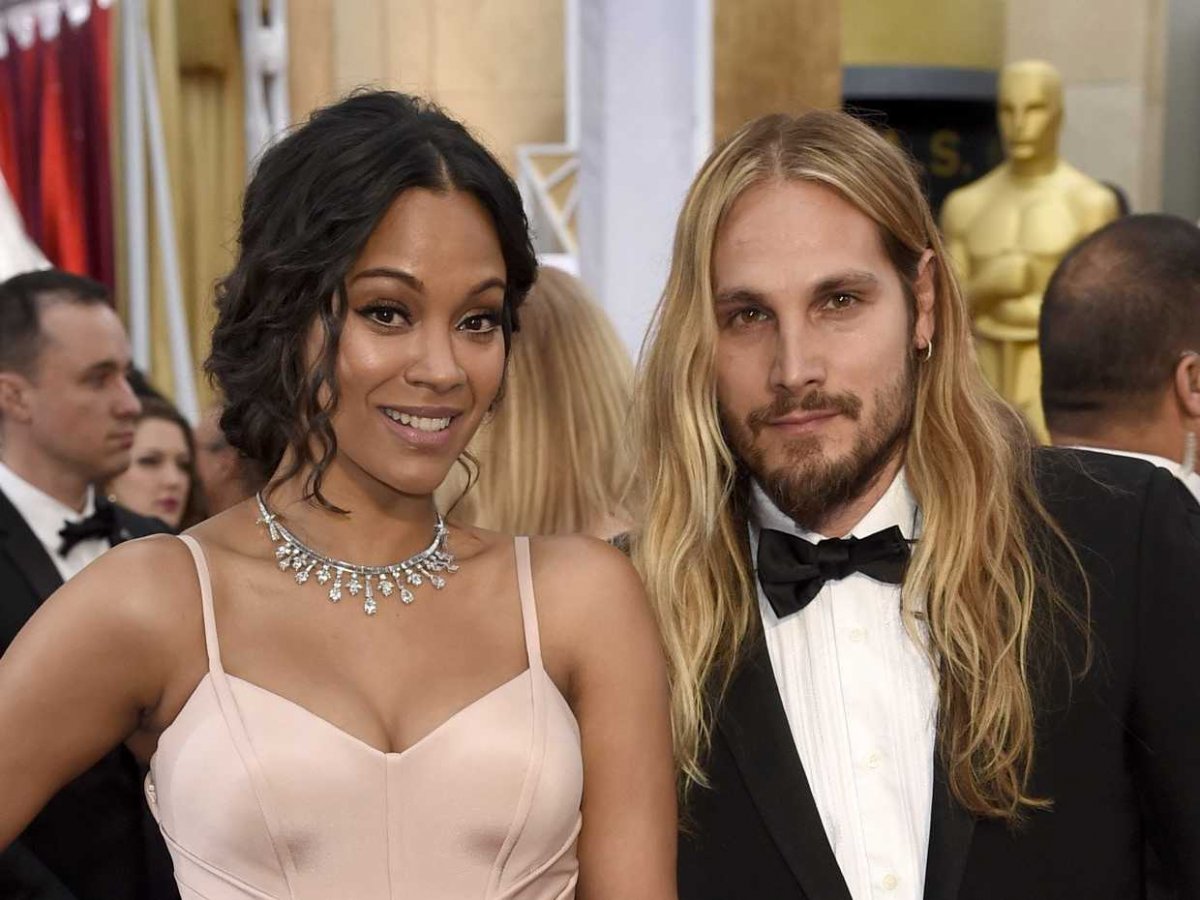
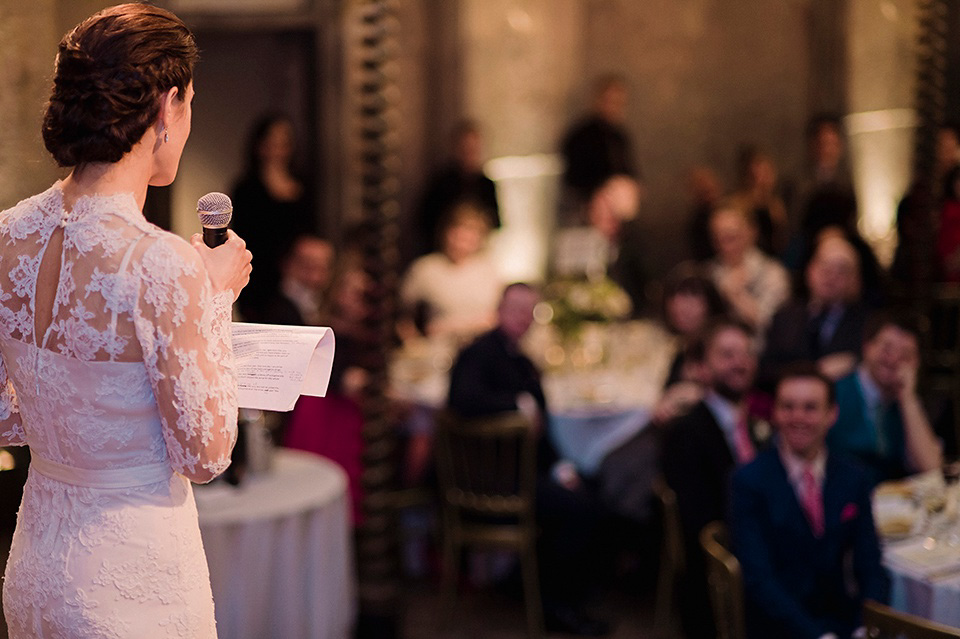
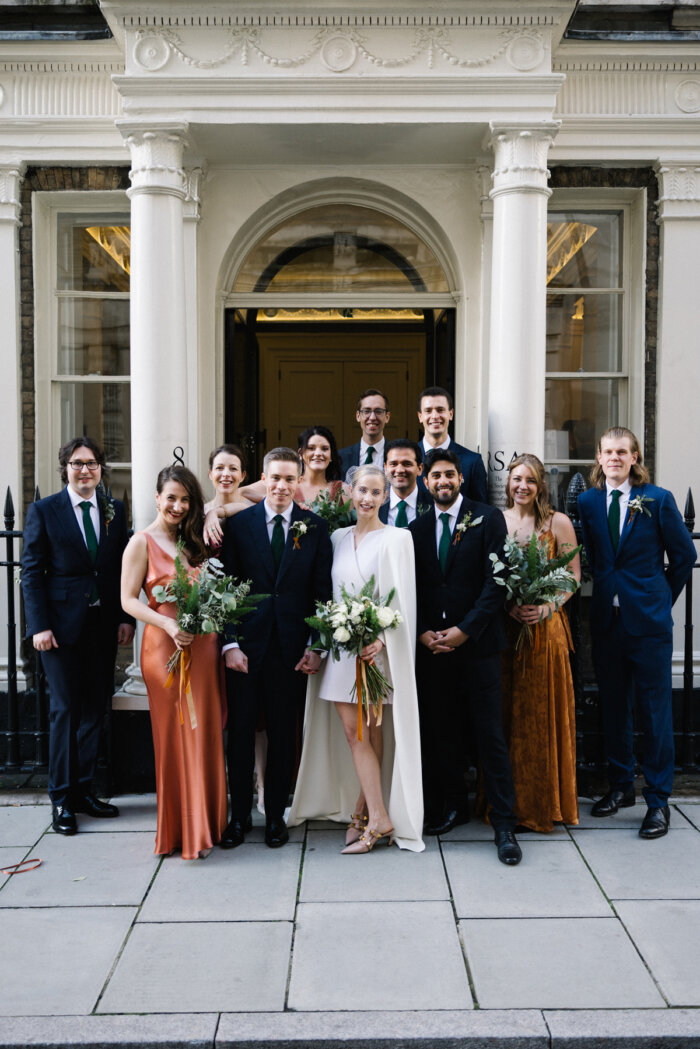
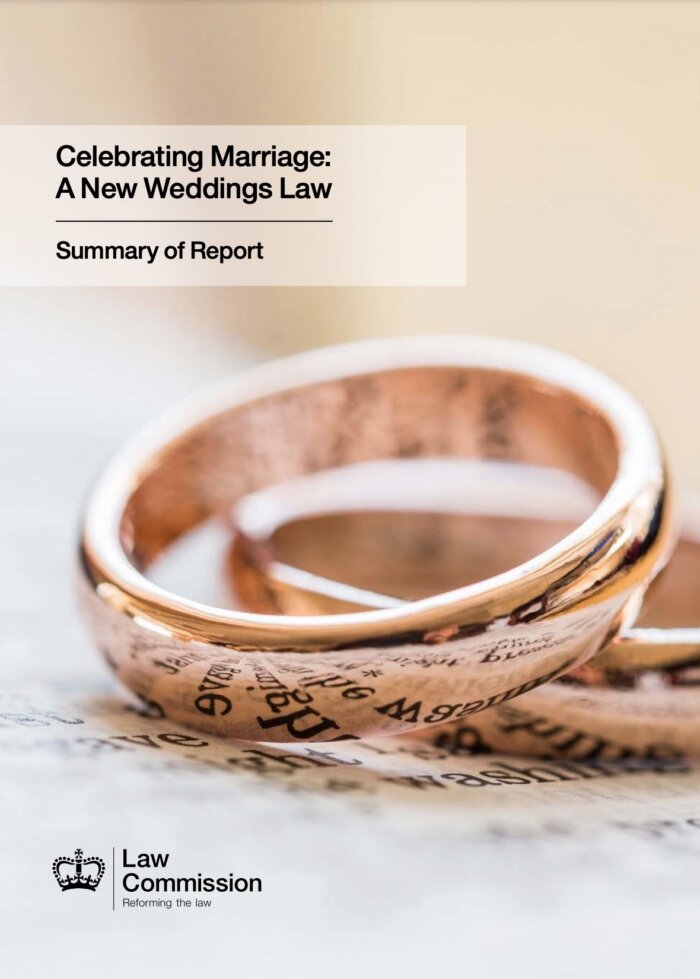
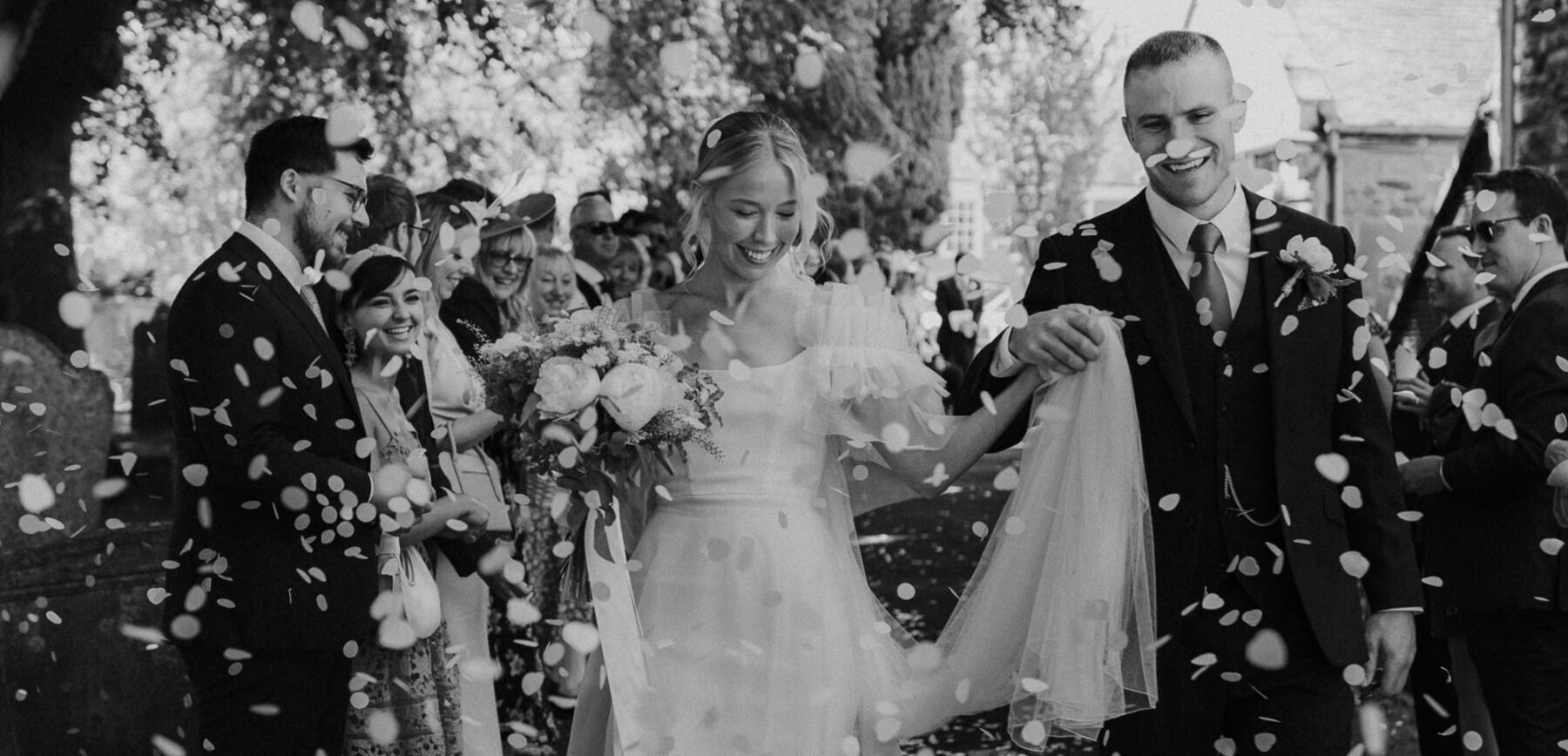
Excellent article. I have to say, I firmly believe modern feminism is about having choice- the choice to decide what we do with our lives, whether we work or stay at home, take our husband’s name or keep it own and so on. As Natasha says, its about making the right decision for you.
I wasn’t comfortable with being walked down the aisle, so I did it alone. I double-barrelled my surname, gave a speech and didn’t throw my flowers anywhere (although for me, this wasn’t due to the associated traditions as much as the fact I adored my flowers and didn’t want them squashed!) but I certainly don’t judge friends who did do these things. It’s important to understand where these traditions originated though I believe, so you can make your choices in an informed manner
S x
I got married a couple of months ago, and was adamant the day would not be dominated by testosterone. I had both my parents walk me down the aisle (bit of a awkward squish, but worth it nonetheless!) and I and my maid of honour made speeches. And definitely no throwing of the bouquet, a tradition I always found highly patronising!
I’m not sure about the name changing yet. I was against it until my mum pointed out that it wasn’t her name I was giving up, as I already had a man (my father) to blame for my surname. I’m not in a rush to change it, but will by the time we have children as I would want us to have a ‘family’ name.
Great article, I got married on Saturday so experienced everyone’s reactions to my less than revere attitude towards wedding tradition. I did get my dad to walk me down the aisle as he has been such a huge support for me and I knew it would mean a lot to him. I gave a speech which lots of people remarked on afterwards as they obviously found it a bit strange but to be honest as the bride you’ve been working your socks off on the wedding for a long time, why Wouldn’t you want to get your say? I only threw my bouquet as a joke to a friend who really wants to get her boyfriend to propose, we were just winding him up…! The biggest tradition for me is the surname changing that people don’t seem to necessarily question that choice- my husband is as much a part of my family now as I am of his, unfortunately our surnames do not make a good double barrelled match so that’s not going to work. I’ve agonised over it but it’s my identity and I don’t want to change it because of tradition. If I had my way when you got married everyone would choose to take a married name for their new family. Fyi mine would be Cloud!
I love love love this article. All of the traditions that Natasha has picked are ones I would get rid of an instant. I’d walk with my Mum and Dad, there would be no bouquet throwing and there definitely wouldn’t be a men-only approach to speaking! But, those are my personal preferences. This year 6 of my friends are getting married and brides are all following their own version of events, some more traditional than others. Those who have chosen to stick with all the traditions you mention above have had the best day of their lives and that, after all, is the most important thing.
I’m so pleased to see this feature has resonated with you Sarah! Thank you for letting us know.
For me it’s all about choice – someone else said on Facebook today that they wanted their father to walk them down the aisle because she loves him which is completely understandable. I guess we’ve moved on in so many respects but there is still stigma attached to tradition for so many and I really think it’s not just important but fascinating to learn how and why these traditions were formed.
Much love,
Annabel xx
Brilliant article, thanks Natasha! I completely agree with the other posters. I’d like to think that many of the original reasons for these traditions have been swept away on the sands of time (I have no idea why I have a fir tree in my house at Christmas for example but I’m sure there’s supposed to be some symbolism there!) and if you like the traditions and are comfortable with them, then that’s cool! I ditched a few of the traditions I didn’t feel comfortable with – I did a speech (with my husband!), I did not throw my bouquet (there was no way that beauty was being thrown), and I’m not taking my husband’s surname. On the other hand my Dad did walk me down the aisle and we had father of the bride and best man speeches. That was right for me and everyone will be different – the most important thing is to go with your heart and don’t have any regrets 🙂 x
So chuffed by all the lovely feedback and to hear all of the different ways that couples have personalised their own experiences and made decisions based on what is right for them. That of course is the only way to get married. I think for too long, traditions have been presented as the only and ‘correct’ way to be married and this simply is not true. Whether your wedding day is full of traditions or your make your own rules, it’s about being true to yourself. x
Such a great article!
I’ll be following all but one of the original traditions (I refuse to get a beautiful bouquet & throw it away, that baby is sticking with me!), but not because I like to embrace sexism in all its forms, but because I find them almost comforting? That’s probably the wrong word.
I’m having my dad walk me down the aisle, but before the ceremony I’ll be going to my auntie’s grave with just my mam & grandma to put a bouquet down.
I’ll probably just have the men doing speeches, not because I’m a downtrodden woman, but because my job involves me public speaking nearly every day & I’ll probably want a rest on my wedding day!
And I’ll be taking my husband’s surname, because I’ll be the only one of me in the country when I change my name, whereas now I’m very common! (& when we have kids we can call them half pints, because his surname is the same as a brand of beer).
I think in a lot of ways, traditions have become more about love as the years have gone on, rather than me being my dad’s property – the only thing I do have a problem with is that only my dad’s details were asked for when we were booking our wedding through the church! What about ladies who don’t have a dad, or haven’t got a very good relationship with their dad, why should they have to be on records forevermore? And what about our lovely mams, they do exist?!
That’s brilliant Emily! I too refused to throw my bouquet away – I kept it, dried it and it’s in a special box now!
I really love the idea of visiting relatives who can’t be there too, what a touching thought.
LOVE the half pint idea 🙂
And what important points you raise at the end too. I wish someone would fix these issues. What is the excuse really in this day and age?
Overall I’m so pleased to see you are doing what you want for YOU!
Love Annabel xx
I could have written this myself. All of these traditions won’t be happening at my wedding, along with the white dress – I’ll be in gold. Glad others agree and times are finally changing so we can all make an informed choice about what we want! xx
Avoiding as much of the sexism inherent in the day was key for me, so very much adopted most of those for my wedding day. My speech rocked, I kept hold of my bouquet and my name. The one thing that really got my goat was having to only put our dads’ names on the wedding certificate – there was nowhere for our mums to be recognised. So we decided to make them our witnesses to ensure they are just as much a part of our important, official wedding documentation.
When we were planning our wedding I became really conscious that wedding traditions left no real *role* for my mum – aside from choosing a mother-of-the-bride outfit. And that made me really uncomfortable as my mum raised me and my sister whilst my dad worked away a lot in the army. So we chose to have both my parents walk me down the aisle, and we had ‘the mums’ act as our witnesses, we also had my mum and my husbands aunt do a reading at the ceremony. During the speeches I gave a speech (actually I have two as once I sat down I realised I had more to say so got up and spoke again – not bad for someone who normally hates public speaking!), I felt that I wanted to have the opportunity to say thank you to everyone who had contributed to our lives and our special day, I didn’t want to be spoken for.
When friends of mine are planning their wedding now I tell them that the best bit of marrying now is that you can pick and choose the traditions that suit you and that you like. You can have your wedding your way and if you want to do something *different* you go ahead and do it.
I had always dismissed a lot of wedding traditions as outdated and a bit sexist., and thought I’d never do them. The thing about wedding tradition in particular is that so many of them relate to the father – your father gives you away, you give up your father’s name for your husband’s, your father makes the big speech…. And then we lost my dad to a short, aggressive and horrific illness, just 5 weeks before my wedding. And I would give anything to have had all the things I’d turned my nose up at in my wedding. It made me think long and hard about these traditions, and realise that yes, if those things are done with the same purpose as when they were implemented back in our sword wielding, pre-womens lib days, they are sexist and ridiculous, but now they are just a tradition and we can divorce them (no pun intended) from their original meaning, to be something that means nothing beyond the honour of your dad getting to stand beside you on your day, and your father and new husband telling lots of people that you are awesome. (Clearly.) I say take the bits that will mean something to you, and who cares if you think they might be a tiny bit sexist in origin if having them at your wedding will mean something special.
I am sorry for those people who lost their dads or their moms. But that does not give us a reason to only let dad walk us down the aisle and omit mom. How the heck do we justify that horrible practice?? And it is a very sexist practice.
If we females are truthful, we know that mother is the one who gave birth to you in pain and agony and held you close to her chest!! And the mother is the one, not dad, but mom is the one who takes care of us and feeds us and nurses our boo boos when we fall and get hurt. Moms work in and outside of the home … so we can’t say it is dad who puts a roof over our heads. Moms do too!! Mom is just as crucial in providing for us as dad and in most cases mom does it all .
How do these brides continue to speak crap about how they feel bad if dad is not the one to escort you down the aisle? . This just breaks my heart for mothers. I love my dad, but he did not walk me down the aisle and I do not feel that I did anything wrong. I and very satisfied with my fair choice to both my mom and dad. My dad is not more important than my mother. No way!!! love my mom and dad. But how dare we omit mom. We women are so stupid for men.
Oh yeah and all that stuff about being a daddy’s girl. There is no such thing . It’s just a man made myth that gas turned into a trend to worship dad. Men started that notion and almost every female jumps on the boat and accepts what men tell females. Just like with other bad disrespectful dating practices that men convinced women to do.
The men started this so that daughters would worship them over mom. I raised my daughters to recognize how vital and strong and important they are with or without a man. My daughters know how to require a boyfriend to treat her, because I as her mother taught her, not dad. Fair and strong daughters do not believe that the dad should escort them down the aisle. They want both mom and dad or no one. Dads are not to be exalted over mother!! Wake up women in the United States and the world. 3-18-16
Wedding styles depend on what the bride wants. Old traditions that exclude any family members, are not good ones.